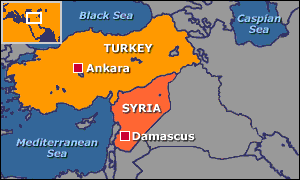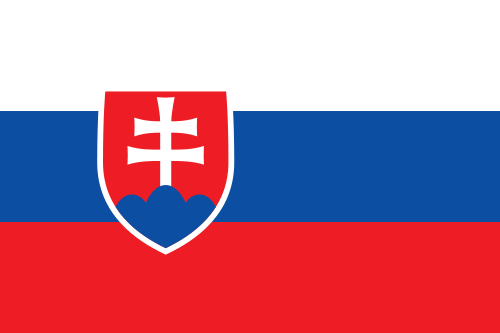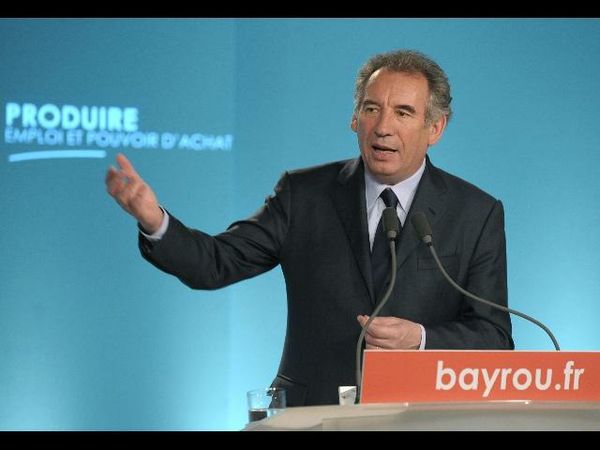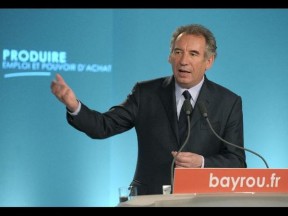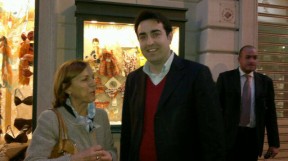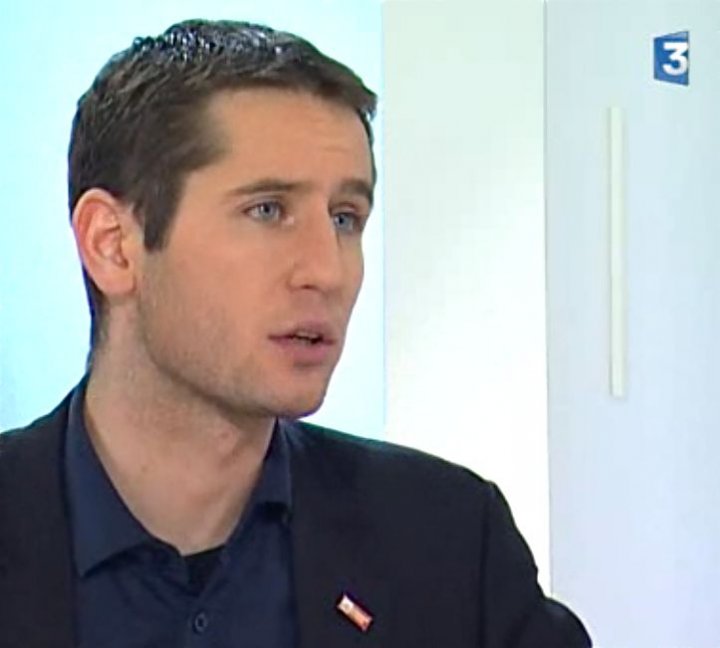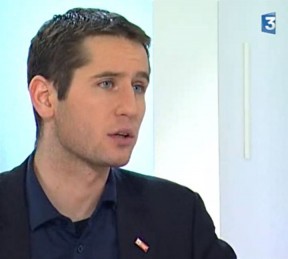11th October 2011, 22:11 pm. The Iveta Radičová’s government, the first female Prime Minister of Slovak history, ends after 461 days of its appointment.
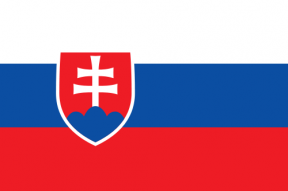 “I wonder what did they achieve. We had to be excluded from the euro zone and European Union? No responsible Prime Minister would sign under this. I accept the Vote of the National Council with humility, but with my head held high.” Prime Minister justifies her decision to join the votes on ERM/EUROVAL with the vote of trust to the government.
“I wonder what did they achieve. We had to be excluded from the euro zone and European Union? No responsible Prime Minister would sign under this. I accept the Vote of the National Council with humility, but with my head held high.” Prime Minister justifies her decision to join the votes on ERM/EUROVAL with the vote of trust to the government.
Liberals from SaS and three out of four „Ordinary People“ faction didn’t partecipate to the vote. This is the end of the first and less stable right wing coalition government in the history of Slovakia. The citizens of Slovakia were witnesses or supporters for a year and three months of various national and internal quarrels of the fragile government, which tried to face strong opposition, but also its own controversy when they managed to form a coalition govern with its only four member majority. Foreing media called it a patchwork, because from the very beginning it was so weak that only few believed it could come to the end of the government period.
For the country, the nation and people …
Political newcomer Freedom and Solidarity, known shortly after the election for its anti-European oriented policy, under the world’s spotlight persuaded the conflicting interests which declares in its name, since its establishment. “We have not produced these problems, so we don’t have to pay them. Slovakia is on the road to serfdom. We will not know how to undo it.” (SAS chairman, R. Sulik, in his speech before the vote on the promotion of ERM/EUROVAL). This behaviour is strange and incredibly irresponsible, especially from a party affiliated to ELDR (ALDE fraction).
Two days later were announced early parliamentary elections, dated the 10th march 2012. Radičová reports that after the early parliamentary elections, would be leaving the SDKU èarty and politics at all.
“The development of the political situation before early elections
October 2011
– After a year and a half of instability and constant chaos Iveta Radičová government falls, the direct reason was ERM/EUROVAL
– The former coalition parties remain within the government, but only to attack each other, most attacks are between SAS and SDKU
November 2011
– Scandal of illegal interception of a journalists coming from the Military Defence Intelligence, the Prime Minister for it eventually withdrew Mr. Lubomir Galko (SaS) from the post of Defense Minister
December 2011
– Just before Christmas appeared on the Internet the alleged SIS file with the codename Gorilla describing corruption practices actions between years 2005 and 2006, in which were involved the then leading politicians, especially from the SDKU, and representatives of the financial group Penta.
January 2012
– Tensions between right-wing parties are escalating, SAS urges SDKÚ bosses Mikulas Dzurinda and Ivan Miklos to leave politics
– SDKU sharply starts to lose preferences
– Thousands go on the streets to protest against the scandal Gorilla
– End of the month broke the case Sasanka, which shows the text correspondence (sms) during the time of election of the General Attorney between Richard Sulík, then head of Parliament and the controversial businessman Marian Kočner, which media associated with the mafia.
February 2012
– Igor Matovič’s Ordinary People candidates fell apart for the reluctance of some members of the movement to show incorruptibility to a polygraph, and immediately Matovič must admit that even he gave bribes
– The Internet has emerged another transcript, where it seemed that Interior Minister Daniel Lipšic, who publicly promised a thorough investigation of Gorilla, cooperated with secret services
– Conflict on the right side of the political spectrum are transferred also between KDH and SDKU. SDKÚ says KDH after the elections wants to go along with SMER, and therefore did not support their proposal “(S. Pachnerová, dirtiest election campaign in 22 years, spravy.pravda.sk, 02/08/12)
The period from late October to early March was characterized by clearly most diverse events. The emergence of new marketing parties (which seemed to believe that they manage to repeat the exploit of SAS), the dirtiest political battle ever, which breaks down all the values and discouraging for many because of the mega scandals… squares full of dissatisfied citizens, egg attacks on the presidential palace, the request for Law and order… and so ran the time from the collapse of the fragile right-wing coalition to the date of the “CHANGE”!
10. march 2012, overall turnout is 59.11%. The clear victory in parliamentary elections of Smer-SD, has no counterpart in the democratic history of Slovakia. With the result 44.41 percent of voters in parliamentary elections is not only a result of his policies, but apparently also of the “fratricidal war” among the right wing parties during the election campaign. The biggest defeat of the ruling parties was suffered from Dzurinda’s SDKU – DS with 6.09% and also the SNS, with a result of 4.55% fell apart the Parliament.
What will happen with the once powerful HZDS, which fell to 0.93 percent? Before the elections, Meciar claimed that if the HZDS doesn’t get into Parliament, he would drop the function along with his vice. After the election, in which the party received less than one percentage of votes, he didn’t show up. Dlho očakávaná správa prišla 27. Apríla
2012. Oficiálne Vladimír Mečiar končí na čele HZDS – ĽS a odchádza z politického života.
The long-awaited news came 27th April 2012. Vladimir Meciar officially ends at the head of HZDS – ĽS and he´s leaving the political life.
The party is in absolute disarray. The closest associates are unable to agree on
how to proceed. There the voices of the termination of the movement itself.
For the first time since November 1989 Slovakia will have a one coloured government.
In an interview for Financial Times released on Wednesday 18 April under the name “Former critic promises fidelity to Brussels” Robert Fico declared: “I will be honest. Slovakia is a small country. We are completely dependent on the economy of Germany and France. We understand that we are members of the club, we understand that the euro has been a successful story for us, till yet. We understand that without Europe, we are unable to survive in this region. These are the reasons why we want to be normal partners, when deciding on the EU agenda”. (Source: vlada.gov.sk)
New times are coming for journalists and considerably less information on the political backstage. Direction acts as a well organized army – party members don’t know much and the others pay great attention to the information leaks. Fico’s clever tactic serves as a great tool for identifying the source of disclosure that allows for almost no leakage. The heart of the matter is just talking important issues with very few people, away from party forums, between four eyes. It is certain that after his first era when he resembled a warrior rather than a statesman, he learned and pragmatically opted for a new style of politics.
Fico surprised people after the elections with a peaceful radiation, pleasantness with the journalists and generosity towards the opposition. In Slovakia after the early parliamentary elections didn’t come a new political culture, it’s only that the currently most powerful man in the State decided to change political tactics…
Though Fico dominated the country, we should not forget that despite the current lower depending on sponsors, his party is still dominated by powerful interest groups.
The first evidence of a big disappointment, when he received a harsh criticism from the public, was the distribution of ministerial positions. During the formation of the government the prime criterion sadly wasn’t the real needs of individual resort or nominees’ expertise. It is obvious that this was only the deployment of people that could not be bypassed for some reason. Of the total nominations may be taken for good perhaps only the Foreign Minister Lajcak. In a big expectation the eyes of the people are clamped on independent Ludo Borec, Minister of Justice, although his views on some issues of the sector are still shrouded in mystery.
“It turns out that Fico has learned a lot from his first term. He’s incredibly friendly to the opposition, but paradoxically this leads to even greater disruption in it. The offer of two Vice-Presidents posts to opposition, as we might expect, caused a storm in a glass of water and lead to mutual verbal attacks. The old coalition failed to agree even to the division of leadership committees, which resulted in conflicting boundary between KDH and SAS (Miskov versus Hudacký) for the Committee on Economic, and respectively KDH vs. SDKU, thus Lipšic vs Fedor for the committee for control of the SIS (information services).” (R. Michelko, Each Fico’s step accompanied by hyper critics, Slovak national newspaper, 18/04/12)
The Govern Manifesto will build on the focus of the program, with which party Smer – SD won the parliamentary elections.
“The Govern Manifesto is quite obviously made by the Government and its departments, which represent this government. But I thought it would be a big mistake if we did not use the capacity, potential and experience of the social partners but also other major institutions working in Slovakia. So I asked the official representatives of social partners for cooperation, so we could seek together breakthroughs in the creation of the government program, where it is possible, “said chairman of SMER-SD Robert Fico.
Representatives of churches, trade unions, employers, employees, local government, retirees union and representatives of the Slovak Education and Science were invited to the public discussion. The main motto of the Manifesto is not only restoring the public finances, but also promote economic growth, employment and protection of people’s living standards.
The government must submit to Parliament a policy statement within 30 days from the appointment. The Parliament meeting from which must be approved the government program, was scheduled on the second May.
On 24 April 2012, Prime Minister Robert Fico, along with Finance Minister Peter Kazimir and Foreign Minister Miroslav Lajčák has travelled for a one day working visit to Brussels.
“The theme of common negotiations with leaders of the European Commission and NATO are priorities for the new government in relation to European issues, efforts to further familiarize the European Commission, especially on the economic intentions of the government, including steps in the consolidation effort and in furthering the process of the EU 2020 Strategy, the situation in the euro area and meeting about the multiannual financial Framework 2014 – 2020 as well as confirmation of the continuity of foreign and security policy of the SR to continue the reform and construction of the defence sector politics in Slovak Republic to match the evolving international security situation and allow the SR to meet its alliance commitments. ” (Vlada.gov.sk)
Wednesday 02/05/2012 Robert Fico submitted to Parliament for debate Program
statement of one party. 65 – page document says about the “Government of security ” orientations.
Immediately after launched in the political arena at the Parliament started strong debate between opposition and SMER-SD.
What was generally expected were the finally confirmed : Fico presented
65 pages with general phrases to try to satisfy everybody. To satisfy the entrepreneurs also social partners and of course especially the voters.
Quarreling opposition sensed a chance after the first elections to the criticism of the ruling party and finally at least agreed that the mission statement on this form is not possibile to controll.
Few specific measures, many general and demagogic phrases,skipped issues as Roma issue, vague suggestions for reducing the deficit, lack of minority issues.
There are no concrete steps how they want to tackle youth unemployment.
The most of opposition revulsion brings the fact that the government is preparing to cancel or interference II. pillar pension savings, repeal flat tax, read-in millionaire tax, which
is becoming more and more generally and the results are that the taxation touched not only rich but unfortunately also the middle class, becuase the “Government of security” is not able to define the words LUXURY and RICHES.
Hurly-burly discussions will continue in the parliament where the oposition will try to show the face they lost after the elections and maybe the new leader will be formed.
The forecast is therefore too early, it remains just to follow the steps of the new Fico government under the spotlight of his supporters, the opposition, the European Union and the whole Slovakia. Surely Mr. Premier took a very big responsibility on his shoulders, because unlikely as during his first govern he hasn’t got any coalition partners which can take responsibility for unclear practises, which may de facto mean a great value added for Slovak people, because the new government would be forced to be correct.
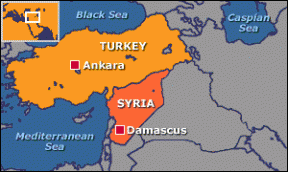 Of all Turkey’s neighboring states, Syria is considered to have the most complex and difficult relationship with it. The historical mistrust and territorial disputes, which originated in the early years of the tenth century as a result of the Arab struggle against the Ottoman Empire and continued in the French Mandate of Syria, worsened during the Cold War. In the 50s opposition was mainly ideological and it caused suspicions and hostility between the two countries that considered themselves the antithesis of a bipolar world. Turkey was the bastion of Western interests in the Near East and it maintained close relations with Israel while Syria aligned itself with Nasser and the Soviet-bloc. In the 80s and 90s the problem of exploitation of the waters of the Euphrates river caused another source of friction which, together with the various attacks and the territorial claims (such as the province of Hatay, formerly Sanjak of Alexandretta), stiffened the already difficult bilateral relationships.
Of all Turkey’s neighboring states, Syria is considered to have the most complex and difficult relationship with it. The historical mistrust and territorial disputes, which originated in the early years of the tenth century as a result of the Arab struggle against the Ottoman Empire and continued in the French Mandate of Syria, worsened during the Cold War. In the 50s opposition was mainly ideological and it caused suspicions and hostility between the two countries that considered themselves the antithesis of a bipolar world. Turkey was the bastion of Western interests in the Near East and it maintained close relations with Israel while Syria aligned itself with Nasser and the Soviet-bloc. In the 80s and 90s the problem of exploitation of the waters of the Euphrates river caused another source of friction which, together with the various attacks and the territorial claims (such as the province of Hatay, formerly Sanjak of Alexandretta), stiffened the already difficult bilateral relationships.
